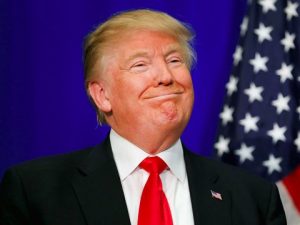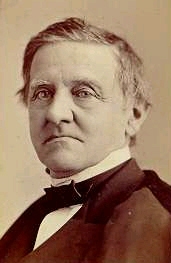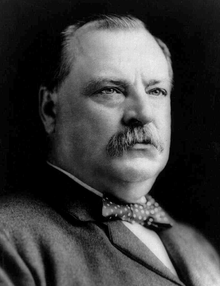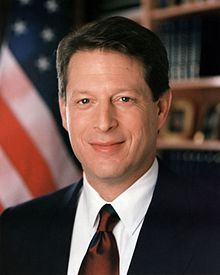The Constitutional Elector System: Defeating Democracy for Two Centuries
It seems to have happened again. This makes four.

Hillary Clinton
The American people just voted for president. The candidate who won the largest number of votes — Hillary Clinton, this year — will not become president. As of now, she is more than 200,000 votes ahead of her leading opponent, Donald Trump. But through the weird alchemy of the elector system, Trump will become president.
It happened in 1876, when Rutherford Hayes “won” the election against Samuel Tilden. And in 1888, when Benjamin Harrison “defeated” Grover Cleveland. And in 2000, when George W. Bush “triumphed” over Al Gore.
Why do we put up with this?

Donald Trump
The presidential elector system grew out of a stalemate at the Constitutional Convention of 1787. The delegates couldn’t figure out how to choose the president. Many thought it outrageous to suggest, as James Madison and Alexander Hamilton did, that the president should be chosen by popular vote. As George Mason of Virginia blustered, the people are ill-informed and not to be trusted! You might as well, he added, ask a blind man to choose colors.
So they created the elector system. The voters were to choose wise men (only men, of course) to be electors. Each state would have as many electors as the combined number of senators and representatives it had, and each state could determine how it would choose electors and how the electors would do their business. Because the electors would be wise, they would choose the most qualified person.
The system was ill-considered, unprecedented, and broke down as soon as George Washington retired from public life. Political parties formed, and parties were not going to tolerate having a bunch of self-important people deciding who would be the best candidate. Only the party candidates would be considered. Many states had their state legislatures choose the electors; only after the Civil War did every state allow voters to choose the electors.
At its core, though, the system has a bias. In the patois of the president-elect, it’s rigged. As I explained in an appendix to my first book, The Summer of 1787, by giving each state two electors based on their senators — rather than allocating electors solely on the basis of population — the system gives greater power to small states. A candidate who wins a bunch of small states can gather up a disproportionate total of electors and win the contest while still having fewer overall votes than an opponent.
No one in 1787 intended that result. In 1787, they didn’t expect popular votes even to be tallied. The system has just worked out that way.

Samuel Tilden

Grover Cleveland

Al Gore
As Samuel Tilden, Grover Cleveland, Al Gore, and now Hillary Clinton have experienced.
It’s a ridiculous barnacle on our democracy, the unintended result of decisions made more than two hundred years ago. We have the power to change it by amending the Constitution. It has been proposed many times. That amendment is long overdue.
Not to mention the fact that still a large portion of the American citizens find it difficult even to register and then to cast their votes at a time and place convenient for them.
David, I agree with what you wrote in your comment about the electoral college system, but I’ll bet you will agree with me that there is zero chance of ever amending the constitution to change it as there are too many small states that realize how much extra power the electoral college system gives them. There is an effort to have a number of states whose electoral numbers exceed 270 agree to have their electors vote for whomever has won the popular vote regardless of how their states voted, but I don’t think that effort is gaining too much momentum (although Maryland voted for it). So, is there any other reasonable path to reform of this system, unique in the world to destroy rather than promote democracy? — Paul
There has been a scheme to upend the elector system through state legislation — a scheme that Maryland is part of. The notion is that states will pledge through a National Popular Vote Interstate Compact to cast their electoral votes for the candidate who wins the national popular vote, no matter which candidate wins the popular vote in that state. If states with a majority of electoral votes make that commitment, then they would control the election. Eleven states with 165 electoral votes have joined the compact so far. http://www.nationalpopularvote.com/. I will admit that this makes me a bit queasy, as it is a plain end run around the Constitution. Of course, the way the elector system works now is also an end run around the Constitution, so perhaps we should not be so particular about it.
Clustering is why we never saw this in the 20th century and now it has occurred twice in 16 years. In 1976 only 27 percent of Americans lived in landslide counties, counties that voted either Democratic or Republican by a margin of 20 percent or more. By 2008, 48 percent of Americans lived in a landslide county. Until the 1980s, people with college degrees were evenly distributed among American cities. After 1980 Americans segregated by education. College educated liberals cluster in lifestyle enclaves like Berkeley, California, and Cambridge, Massachusetts. This change is documented in a 2008 book called titled “The Big Sort, Why the Clustering of Like-minded America Is Tearing Us Apart.”
A very useful insight, Roger. Thanks. Suggests this will recur, which certainly undermines the legitimacy of every minority president.
Totally agree re electoral college–it’s a travesty. It would be a very heavy lift to change it, but can kind of halfway imagine it happening. What I can’t see happening is changing the way the Senate is chosen to make it more democratic. I know that was a or the key compromise that made our country possible–so maybe defensible then. Don’t see it as defensible now–but also don’t see how it can ever change. Not what we’re thinking about at the moment, obviously, but just thought I would mention
I recall a statistic a while back that senators representing 18% of the population can make up a majority of the Senate if they vote together. It is profoundly anti-democratic, but was definitely an intended compromise of the Framers; and it doesn’t work terribly. A challenge to the Senate’s structure would feel theoretically correct, but perhaps unnecessary as a practical matter. One unexpected result of the insane gerrymandering of House districts is that the Senate is now the more volatile House of Congress, and is more likely to change hands between parties, even though the Framers expected the House to be the more volatile one and the Senate was designed to introduce stability into the government.
The Electoral College could (and should) be abolished pursuant to David Stewart’s discussion above. Although such a constitutional amendment is politically infeasible in the foreseeable future, I think people should nevertheless publicly advocate it and thereby try to change public opinion on the subject. Some of the comments have touched on the formula of two Senators per state. Article V of the Constitution, governing constitutional amendments, prohibits any amendment to the equal representation of states in the Senate: “no state, without its Consent, shall be deprived of its equal Suffrage in the Senate.” Although it’s a purely academic question (it will never happen, at least in our lifetimes), does anyone have any thoughts whether or not this oxymoronic provision would preclude a future constitutional amendment to change Senate representation in accordance with Madison’s original wish to make it proportional to population? Has any constitutional lawyer or scholar addressed this question?
Those supporting a constitutional amendment to abolish the Electoral College and institute the direct popular election of the president can sign a petition to that effect at
http://pac.petitions.moveon.org/keystoneprogress/sign/end-the-electoral-college-12?source=s.fwd&r_by=16986978.